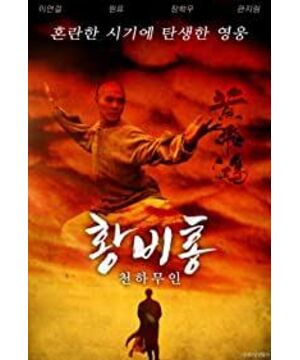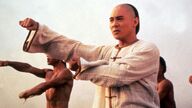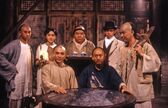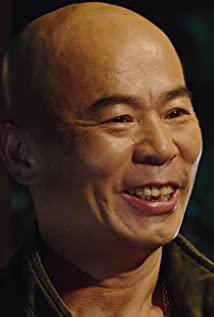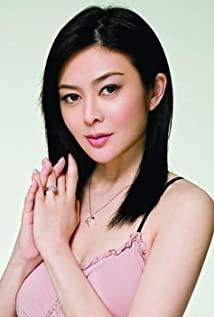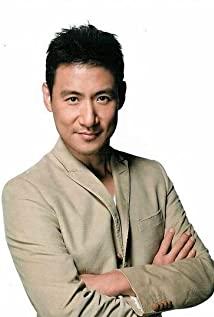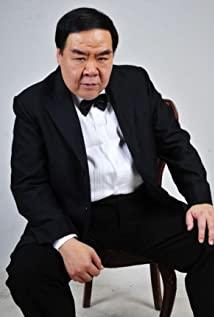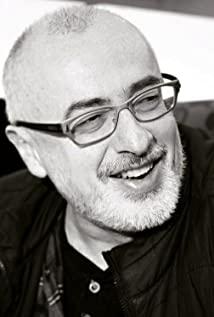Therefore, there are heroes in troubled times, and only in the era of declining courtesy and music, can there be so few people who do not follow the rules but make unworldly achievements. The so-called "xia" is often born in this era. You can’t see that in Jin Yong’s novels, whether it is Guo Jing, Yang Guo, Zhang Wuji, Yuan Chengzhi, all are living at the time of the break of the country, the autumn of survival.
However, the inertia of Chinese history and Confucian ethics is so great that occasionally the ups and downs have been magnificent, and they have quickly subsided, and continue to go to the unwavering world of heaven and earth. Merry is always blown away by the rain and the wind, and there is no trace of it except for a chapter in the history book "The Biography of the Ranger". Only the European powers, with strong ships and powerful ships, used cannons to blast a "major change unseen in thousands of years". All the old things were shattered and remixed. Every man of insight was repositioning himself and the nation. Position in the world. The industrial revolution and the enlightenment of thought roared like a tornado on this ancient land at the same time. Although it has not been able to change China's weakness of being mermaid in a short period of time, at least a whole modern Chinese history of talented people has been born.
In such a big era, it stands to reason that how many literary and artistic works can be produced, whether it is used for reviewing, or for reference, there are plenty of articles to do. But confined to ideological disputes, this not-so-distant history has too many unspeakable things, disputes about right and wrong. Therefore, both literary creation and film and television adaptation are quite restrictive. The lessons learned from "Towards a Republic" are still there, and latecomers are more cautious, so to this day, this period of history has slowly been forgotten by the mainstream of literature and art.
In fact, in the eighties and nineties of last century, the descriptions of this period in the three places on both sides of the strait all produced some fine works. Among them, the author's favorite is Tsui Hark's "Huang Feihong" series.
Hong Kong directors undoubtedly have unique advantages in shooting themes of the collision of Eastern and Western cultures. The port has been opened for a hundred years, and the Chinese and foreign countries are mixed. Here, the see-saw of tradition and modernity is much stronger than that of any place in China, and it is much earlier.
In fact, a simple sentence of cultural collision is far from being able to summarize the essence of the "Huang Feihong" series. Just like the English name of the movie-"once upon a time in china"-China's past. The whole Huang Feihong series, especially the first three movies starring Jet Li, are classic because the film fully displays the life silhouettes and spiritual roots of Chinese people from all walks of life in a fragmented and renewed era.
As the protagonist, Huang Feihong, although he is a martial artist, is a generation of masters, he is calm and elegant in his actions, is not surprised at all, and is proficient in medical skills. Yunwen and martial arts are the representatives of the traditional Chinese scholar-official class. When the great change comes, they are the first group to be impacted. Thousands of years of ethics and morals turned into powder in the face of strong ships and guns, and the dream of the boss empire was shattered overnight. But they are also the first group to awaken. From Lin Zexu to Wei Yuan, and then to Tongzhi Zhongxing and a group of important ministers, the thought of change began to spread in the upper strata, until the Westernization Movement, the Reform Movement of 1898, and even the Revolution of 1911. Although they themselves, as an outdated old class, were swept into the old paper pile of history, but The credit for pioneering the atmosphere and thinking about saving the country is indelible.
Just like the literati class of that era, Huang Feihong in the movie also went through a process of ideological transformation. He was conservative in the beginning, not without stubbornness. But as the narrative unfolded, on the one hand, he was influenced by the thirteen aunts who had returned from studying abroad. On the other hand, he was shocked by the indisputable status quo of poverty and weakness in China, and began to change his mind. In this way, Confucianism or Chinese culture has cracks in the old-fashioned and immutable armor-you know, what Confucianism advocates is that the ancestors cannot easily succeed in the law, and the words of the sages cannot be violated.
Of course, as a traditional Chinese, Huang Feihong also has his personal limitations in the great age. When dealing with a broken country and a fragile citizen, he mourned his misfortune and angered him as Mr. Lu Xun said, but he could not find a way to save the country and the people. Medical skills can't save the Chinese people, and they can't wake up the Chinese people even more. He can only wake up everyone drunk and retreat to my hometown to take care of myself.
The Shisanyi, Yajiasu and others represent another kind of Chinese. They accepted Westernization in their entirety, but they seemed incompatible with this ancient country. On the contrary, they themselves became the targets of revolution for some radical patriots. Their tactics can't save this dying dying empire. They can only prove how terrifying and desperate the so-called state of Chinese etiquette, the land of the Empress and the Empress, is from the world.
The remaining people of all kinds of colors and so on, all have distinctive characteristics of the times and the representativeness of classes and strata. Among them, there are those who appear as villains but are sympathetic, such as Yan Zhendong and Nalan Yuanshu, and there are also those who are honest but have ghosts, such as Yigan Bailianjiao and the Boxer League. The troubled times show chaos. All beings will sing and I will appear on the stage. Each has its own plan, and each has its own ghost.
Yan Zhendong has the metaphor of the old order—excellent and invincible. But in this changing era, his set of things is outdated, so he has only two choices, either poverty is down to the end of the hero, or the villain will help him. His death was self-inflicted, but it was also a fateful tragedy. Fists can never be lower than guns, and he is just a tragic hero in a wrong era.
And Nalan Yuanshu is more full of ancient Greek style of sadness. His martial arts is extraordinary and he has learned everything. He should have been the most elite and most useful talent in this great change. But he could not choose his own birth, nor could he abandon the interests of the Manchu nobles he represented, so even if he clearly knew that he could not stop the trend of history, even if he had a heroic sympathy for Huang Feihong, he still could not restrain him. Clothed into a stick, ushered in his fateful death like a pebble hitting a rock.
If these two kinds of people become resistance to change because of their stubbornness and conservativeness, then people like the White Lotus Sect and the Boxer Rebellion have even more manifested the inferior nature of the Chinese people's ignorance and ignorance. Stupid people are the easiest to be incited, no matter what kind of ambition and black heart is in the belly of the impassioned and invulnerable leader, altar master, or other people. Generations after generations of Caominshan have become cannon fodder, using blood and bones to build a great success...
"It is easy to govern people, but it is difficult to govern the country." Today, the Chinese people are still ignorant of the people, let alone a hundred years ago. In fact, it is not only the White Lotus Sect and the Boxer Regiment, but also the unsuccessful people of the market, a pile of black and white onlookers, groups of people praised and praised the "Self-Give Five"... No wonder Lu Haodong has lost all his thoughts. Over the past 100 years, Even with the rumbling of the Xinhai Cannon and the shout of the Tiananmen Gate, how has it changed since then?
What's more difficult to get on the stage is Zhao Tianba and the Shahe Gang. One of them is a land ruffian and a tyrant, and the other is a comprador traitor. No matter who sits in the country and who wins the world, the former will always be bullying and arrogant. The latter is eager for internal and external troubles in order to make a fortune in the country's disaster. But these people are nothing but clowns and skin sores. It is impossible for them to really get lost in this country.
Therefore, Huang Feihong understands that people of insight over the past century also understand that China is the first to open up people's wisdom. Let’s look at Huang Feihong’s words:
"Master Li, the so-called winner is the king, and the loser is the bandit. The sky cannon fired just now. If there is no sky lantern to block the gun, no one knows who will win or lose. Now the gold medal is here. In the hands of my Huang, I did not win; the lion king contest organized by the adults to show off the power of our people has killed and injured so many people. In the eyes of the world, we have all lost. As long as you practice martial arts to strengthen your body, you can resist foreign enemies; more importantly, broaden the wisdom of the people and the unity of wisdom and martial arts. This is the way to prosper the country and the people. Please think twice about whether a brand can change the national fortune. This gold medal, just keep it. As a memorial to you, goodbye! "
Although it is not without preaching, but the essence of the entire "Huang Feihong" series lies in this.
After understanding this, it is not difficult for us to understand why "Huang Feihong's Heroes Have Dreams", which was released last year, was criticized and even not well-known.
It is said that it is a young Huang Feihong, but in fact, Peng Yuyan is two years older than Jet Li who played Huang Feihong at the beginning of the year, but he is like a hairy boy in the play. How can there be a master's posture? After all, this is just a third-rate gang story with "A Fei" as the protagonist. Although Peng finally changed to Jet Li's classic appearance of Huang Feihong, if the protagonist of the story is changed to another name, it will not affect the narrative process in any way. In addition, the actions are both ugly and ugly, and the theme is empty and boring. The only thing left is the male celebrities' meat sellers and the female celebrities' show faces, which will be uninteresting.
Looking back at Jet Li, although he was still a bit young back then, his slightly shy performance matched Huang Feihong’s grandmaster demeanor and gentleman manner, coupled with his nonchalant humor and extremely gorgeous action style from time to time. Let Huang Feihong become the most classic role in his acting career, and let Huang Feihong become the last great traditional hero image on the Chinese screen.
Tsui Hark raised many questions, but did not give an effective answer. Huang Feihong saved the spark of the revolution, but after the revolution, China is still chaotic. What should we do? He put forward the appeal of enlightening people's wisdom, but how can the ruling class be willing to delegate power and how to implement the enlightenment? He fought off the evil cult that pretended to be gods and ghosts, but the generations of angry youths who had been patriotic in the name were still passionate about their brains, and cults were still rampant. How could the deadlock be broken? No matter how much Tsui Hark, Foshan Wuying has never had a triad enemy. The righteous will always win, and the unjust will be killed. With such a simple method full of romanticism and heroism, he resolved the contradictions and drama conflicts in the film. , But also left one question after another, which makes people think and think deeply.
The most exciting first to third parts of Huang Feihong’s series were filmed between 1991 and 1993. During that time, Xu Hart’s talent was the most exposed, and it was also the time when his creative desire and artistic ambition were the strongest. When Hong Kong was just and about to usher in a major event, how many metaphors and expectations of reality were added to the movie by Mr. Xu, perhaps only he himself could make it clear. Of course, we can't deny that the entire series is full of some common problems of Hong Kong movies-disrespect for historical and geographical details, deliberately unreasonable plots and excessively flattened divisions. However, the Hong Kong movies at that time were a bit more unrestrained and unrestrained than the current Chinese-language blockbusters, and the eclectic atmosphere, which one is better and which one is better, is a matter of opinion.
Now Tsui Hark is obsessed with film technology innovation and intends to bring the special effects level of Chinese films closer to Hollywood. Such Old Monster Xu is of course very important and worthy of respect, but we still miss him even more of his childlike innocence, his unbelievable nature, and his brilliant pen.
Just like, we miss the Huang Feihong who wins snow in white and wanders like a dragon even more.
View more about Once Upon a Time in China reviews


